
In this July Issue: we celebrate World Hepatitis Day, travel around New South Wales with the #HEPCURED team, launch a series of collaborative hepatitis B videos and much more.
- Nominations now open for the 2025 Cheryl Burman Award
- A Call to Action on World Hepatitis Day
- HEP CURED and Clinical Partners tour NSW
- EMPOWER Reaches 50 Outreach Events. A Huge Milestone for Hepatitis NSW and our Partners
- Hepatitis B and Multicultural Liver Health Team Visit our Filipino Community
- Hepatitis B and Multicultural Team Co-Design Video Campaign
- Speaker Service Training Welcomes First Nations Voice with Lived Experience
- Technology Training Showcasing Culturally Diverse Lived Experience Speakers’ Stories Online
- Hepatitis NSW Staff Focus: Chantell
- Tackling hepatitis C Together: Aboriginal Led Harm Reduction in Custody
- Hepatitis B Voices Australia is Hiring
- SafeWork NSW Consultation: How to Manage BBV Exposure Risks in the Workplace
Nominations now open for the 2025 Cheryl Burman Award

Do you know a person or a team who has done outstanding work and contributed towards the elimination of viral hepatitis in NSW? Then you should nominate them for this year’s Cheryl Burman Award!
The award pays tribute to Cheryl Burman, a key individual who provided exceptional leadership in the NSW viral hepatitis response. Cheryl was a member Hepatitis C Council of NSW Board from 1993 to 2000, and was President from 1995 to 1999. Cheryl made significant contributions to the governance and leadership of our organisation for almost seven years and continued to remain friends with and a supporter of Hepatitis NSW. Sadly, Cheryl died on 9 August 2011 after her very long struggle with hep C. We are pleased to name this Award in Cheryl’s memory and honour.
Hepatitis NSW’s Cheryl Burman Award is an annual award, given to a person or group who have done outstanding work in NSW in the fight against viral hepatitis. This could be in the advancement of treatment, support, information provision, prevention or management for people living with viral hepatitis.
How do you nominate someone?
Go to our website and complete the online nomination process.
Alternatively, call Hepatitis NSW on 02 9332 1853 to nominate someone over the phone.
For further information email hnsw@hep.org.au.
The closing date for nominations for this award is 5pm Monday, 18 August 2025.
This year’s award will be presented at our AGM on Thursday, 27 November 2025.

A Call to Action on World Hepatitis Day
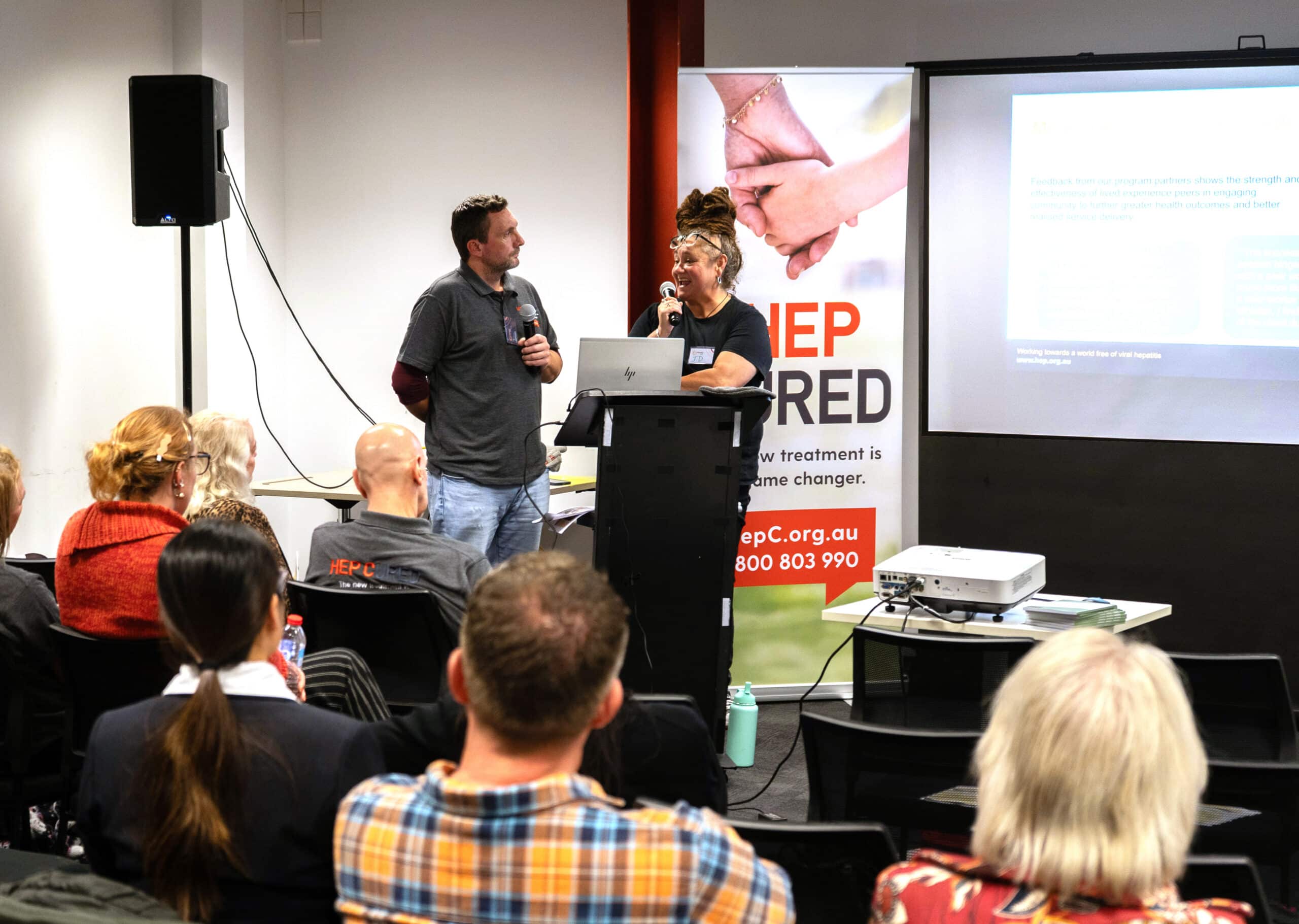
Hepatitis NSW hosted 80 partners and stakeholders at our annual World Hepatitis Day event on 28 July. Hepatitis B and hepatitis C are the most prevalent blood-borne illnesses in Australia. Viral hepatitis is the second leading cause of death from infectious disease globally, according to the World Health Organisation. At Hepatitis NSW, we are committed to achieving a world free of viral hepatitis by actively supporting the NSW Hepatitis B and NSW Hepatitis C strategies.
Today there is a cure for hep C and a vaccine and effective treatments for hepatitis B. We need to get them to the people who need them.
The challenge in achieving elimination is in reaching those people living with viral hepatitis but not currently engaged in screening, treatment and care. At its World Hepatitis Day event, Hepatitis NSW showcased the diverse and extensive programs, initiatives and activities we are delivering in support of the NSW elimination effort, including:
- Connecting hepatitis B patients: Hep B Writing Competition in Language (Mina)
- Peer Implemented point-of-care antibody testing for hepatitis C infection to enhance linkage to hepatitis C RNA testing and treatment: the EMPOWER study. (Pip)
- HepLink: Peer led DBS testing and care pathways support to find and assist people living with hepatitis C through treatment to cure. (Gracey)
- Learning from 20,000 engagements: the evolution of Hepatitis NSW’s lived experience peer programs. (Liam & JD)
- Hepatitis C testing and treatment motivations for First Nations communities. (Grace & Maia)
Our communities can celebrate. In a single generation a life-threatening disease – hepatitis C – has been discovered and a simple cure developed. The treatment is also on the PBS making it affordable. People don’t have to live with the risk of liver disease and liver cancer when a simple effective cure is available.
Since 2016, 59% of people living with hep C in NSW have received treatment using game-changing Direct Acting Antivirals (DAAs). However, even today thousands of people in NSW have not been diagnosed. They remain unaware that they have hep C and can be cured.
Hepatitis B is vaccine-preventable and NSW has had great success with a comprehensive baby and infant immunisation program. Medications for treatment are affordable thanks to the PBS, but also available free via the NSW Government Section 100 (s100) co-payment initiative.
To achieve elimination, we must reach more broadly and more deeply into diverse communities. Research highlights changing priority populations, as well as hidden and disenfranchised groups. We need to find out what motivates people to get tested and what the barriers are. Our messages and programs need to respond accordingly.
Testing is now easier, faster and takes place in community settings. There are fewer barriers for people to find out their hep C and hep B status and to start on an improved health journey.
It is important everyone is better informed and able to support family, friends and loved ones who may be at-risk of, or living with hepatitis B or hepatitis C. Knowledge will go a long way to helping address the stigma and discrimination that still exists and is a big barrier to people seeking testing and treatment.

HEP CURED and Clinical Partners Tour NSW
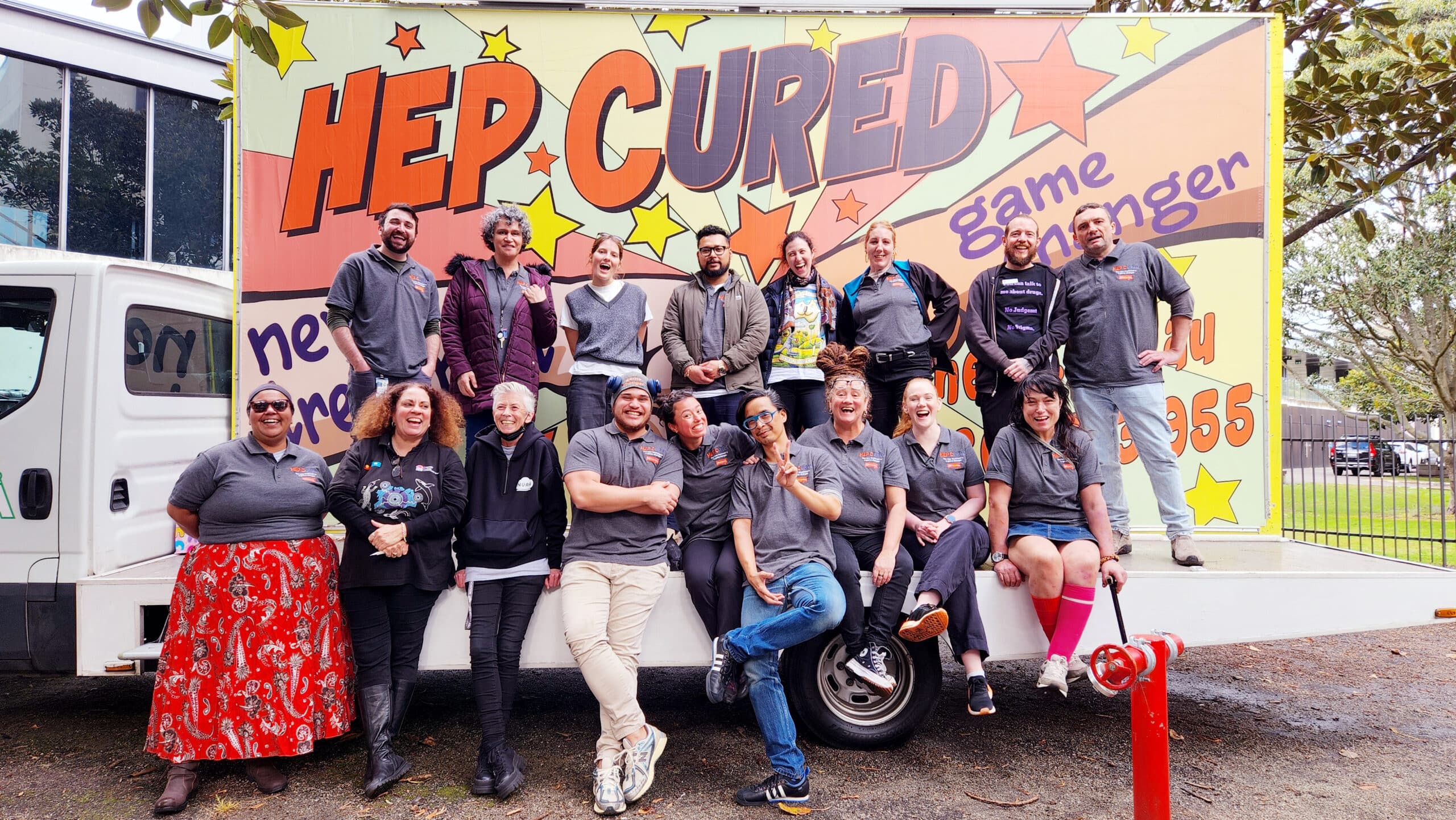
July 2025: Each year, World Hepatitis Day and the NSW Hepatitis Awareness Week is an opportunity to raise awareness about viral hepatitis and encourage people to act. It is also a chance for our team to promote and support our community partners who are delivering health promotion, testing and treatment activities through outreach and at across hospitals, liver clinics, drug health services, mental health and homelessness services.
Hepatitis NSW’s #HEPCURED campaign promotes the message that hepatitis C can be cured. Medication cures over 95% of people in 8 or 12 weeks, and is easy to take. Just pills, no injections and has few side effects. More than 59% of people who were living with hepatitis C in NSW have already been cured. Elimination of hepatitis C is now an achievable goal due to the combined, collaborative efforts, and the support of government, the health sector, and our communities.
The #HEPCURED campaign ran throughout NSW in July, and featured 2 travelling mobile murals and included outreach events where we partnered with health and other services to promote and deliver hep C testing and treatment. Across Sydney from Redfern to Campbelltown; and across regional NSW from Narrandera and Wagga, to Lismore and Port Macquarie, we worked with community groups, Local Health Districts and an incredible team of lived-experience peer workers from both Hepatitis NSW and NUAA to bring elimination of hep C a step closer in NSW.
VIEW OUR SLIDESHOW OF HEP CURED 2025 EVENTS IN NSW

EMPOWER Reaches 50 Outreach Events. A Huge Milestone for Hepatitis NSW and our Partners
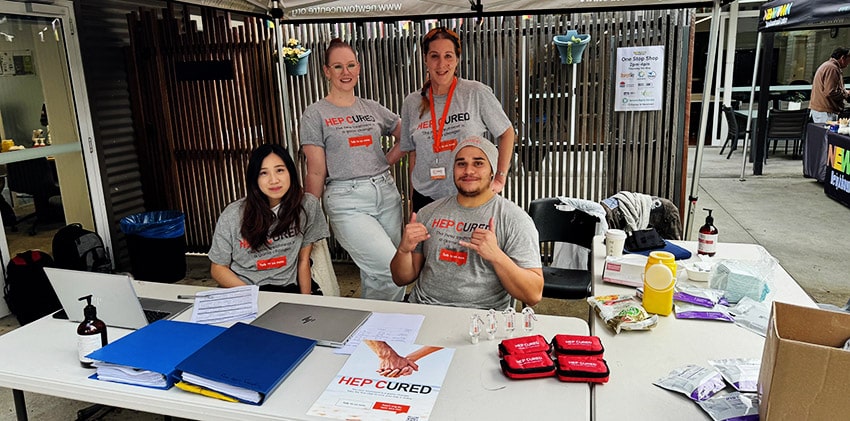
We’re thrilled to announce that EMPOWER has now completed 50 outreach events in a major milestone for Hepatitis NSW’s peer-implemented hep C testing programs.
Launched in August 2023 in collaboration with the Kirby Institute, EMPOWER offers rapid, one-minute hep C antibody testing delivered by trained peers with lived experience. At every event, our peer team creates a safe, stigma-free space where participants are supported, and empowered to take control of their health.
This milestone is a celebration of community connection, compassion, and collaboration. Our incredible peers have guided hundreds through testing, education, and support. A huge shout out to our healthcare and nurse partners who have played a vital role in linking participants to treatment, ensuring that EMPOWER is not just about testing, but about real pathways to care.
The response has been overwhelmingly positive, and we’re excited to keep expanding EMPOWER’s reach with more Local Health District partners and community organisations.
Want to learn more or get involved? Reach out to Pip, Project Coordinator for NSW Point-of-Care Testing Programs and Research at pbray@hep.org.au, we’d love to hear from you.

Hepatitis B and Multicultural Liver Health Team Visit our Filipino Community
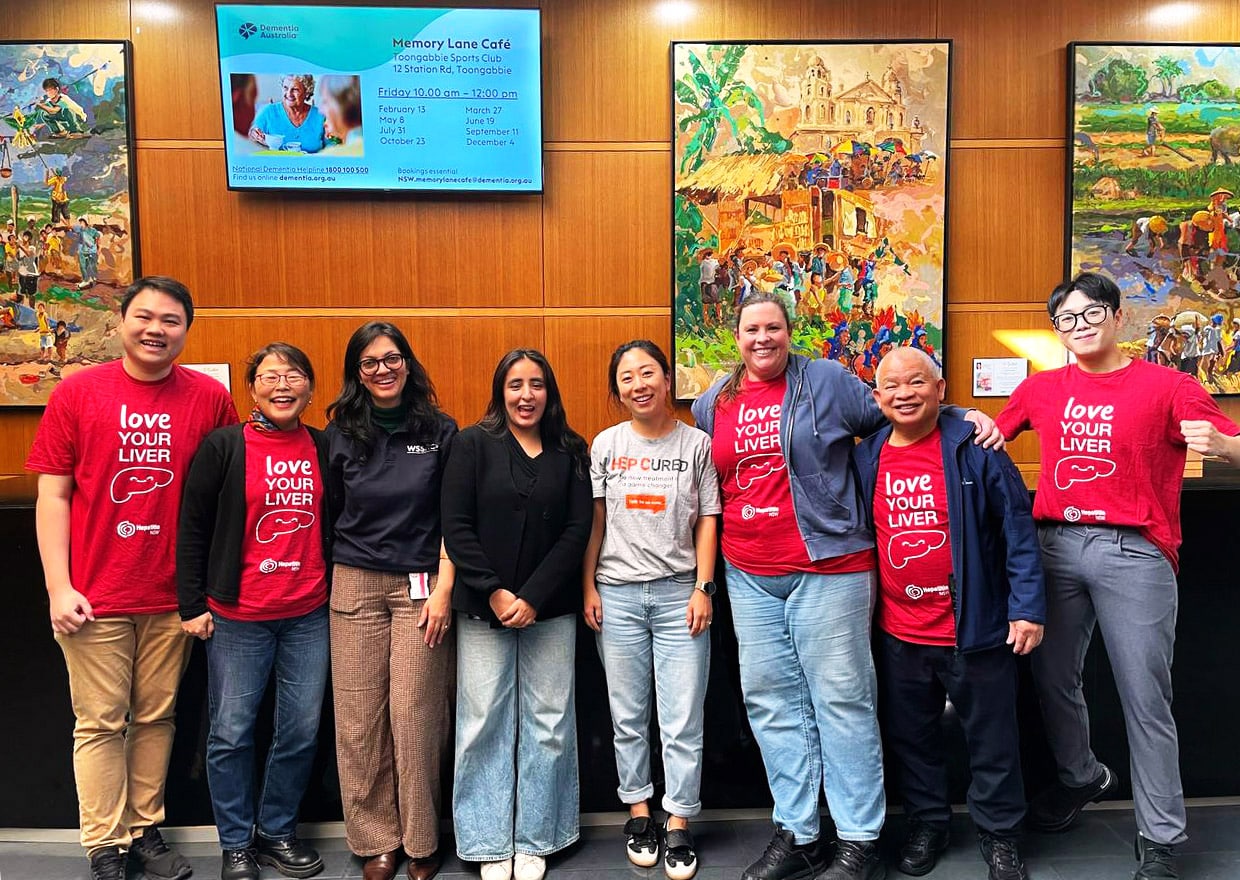
As part of this year’s Hepatitis Awareness Week, the Hepatitis B & Multicultural Liver Health Team launched a lively outreach event in collaboration with the Filipino community of Blacktown.
Held at the Max Webber Library function room, the event featured an engaging education session led by Willis, followed by full blood screening conducted by hepatology nurses from Westmead Hospital. Around 40 attendees took part in the screening, making it a successful day for community health engagement.
Educational resources in English were distributed, along with giveaway items such as beanies to encourage participation and raise awareness. The venue was beautifully decorated with paintings by local Filipino artists, showcasing cultural themes and adding a warm, welcoming atmosphere to the event.

Hepatitis B and Multicultural Team Co-Design Video Campaign
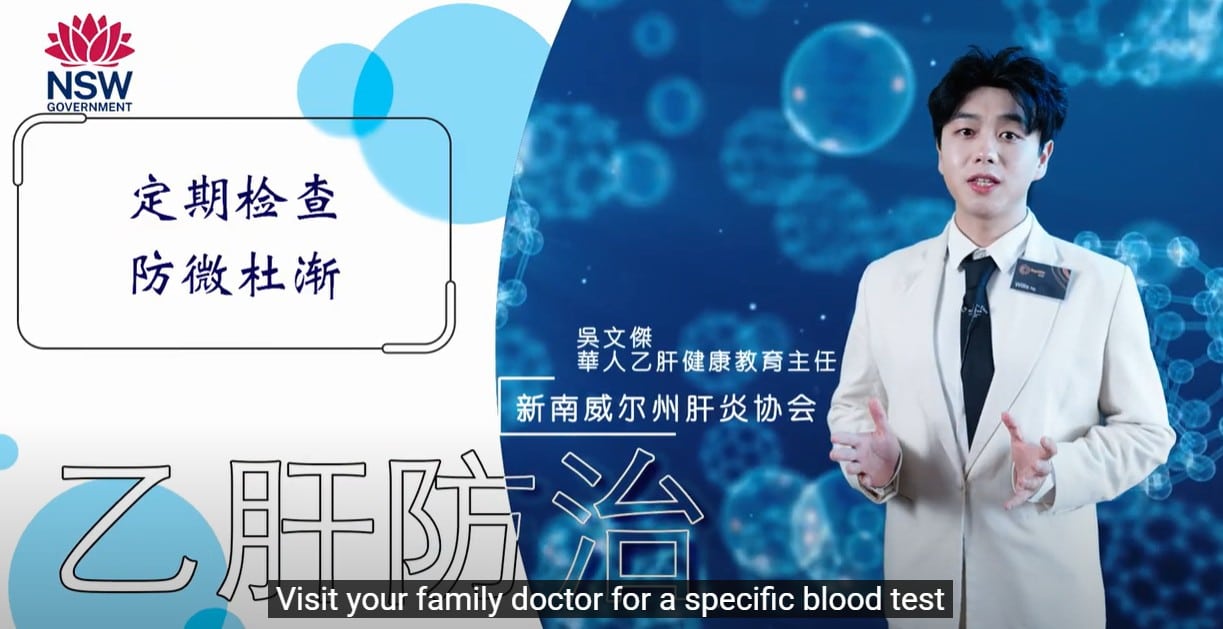
Raising awareness and improving levels of education about hepatitis B helps to reduce stigma and discrimination which in turn leads to better outcomes for people’s testing, monitoring and treatment.
Hepatitis NSW is pleased to partner with the South Eastern Sydney Local Health District, Multicultural HIV and Hepatitis Service, Advance Diversity Services, the Chinese Australian Service Society and the Chinese community to produce a series of educational videos and posters.
The video and poster campaign, co-designed with the local Chinese community, consist of 5 resources that address key points of interest including:
- “Hepatitis B: Myths and Facts”
- “Do I need checkups if I don’t feel sick?”
- “Do I need to disclose hepatitis B at work?”
- “Sharing meals does not spread hepatitis B”
- “Preventable, controllable, live well with hepatitis B”
The campaign is now live and the videos, in Chinese with English subtitles, can be found below.
Hepatitis B: Myths and Facts — How Much Do You Know? 乙肝的真相与误区,你知道多少?
Do I Need to Disclose Hepatitis B at Work? 我需要在工作中透露我的乙肝情况吗
Sharing Meals Does Not Spread Hepatitis B 聚餐不会传播乙肝
Preventable, Controllable, Live Well with Hepatitis B 可防可控,健康生活伴乙肝
The English and Chinese posters can be downloaded for free below.
Can sharing meals spread hepatitis B? (Chinese version here)
Testing and Vaccination (Chinese version here)
Do you still need regular check-ups if you don’t have symptoms of hepatitis B?
(Chinese version here)
Living a healthy life with hepatitis B (Chinese version here)

Speaker Service Training Welcomes First Nations Voice with Lived Experience
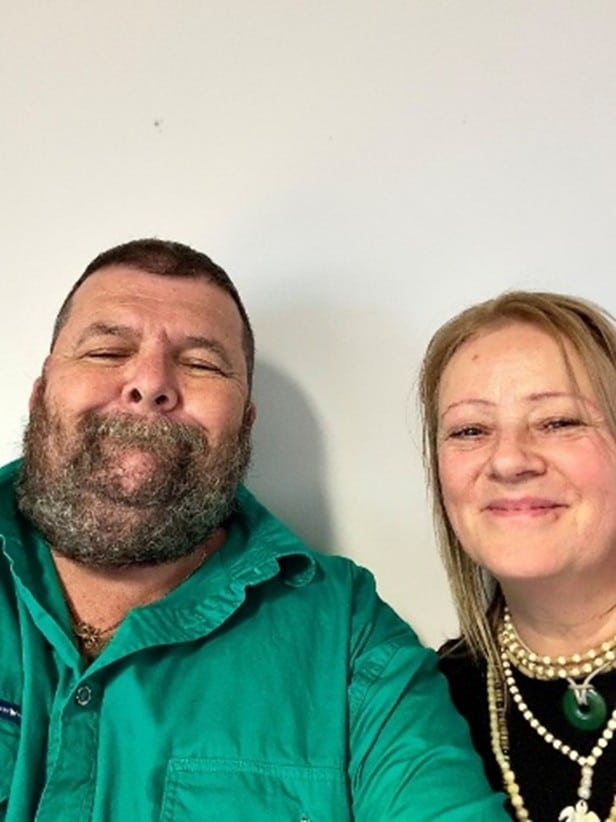
The Hepatitis NSW Speaker Service is a highly successful program that connects people who are affected by viral hepatitis to community, professional and health services with a view to sharing their experience of living with hepatitis C or hepatitis B. It aims to develop and increase understanding of how issues such as stigma and discrimination impact on access to healthcare and support services. This has been shown to be an extremely effective strategy in improving attitudes, values and behaviours of the broader community and healthcare workforce.
Hepatitis NSW speakers are highly trained and supported, so to maintain the high standard we insist on, we recently brought together both new and current speakers with lived experience of hepatitis B or hepatitis C for a training session. The Speaker Service is coordinated by Susanne, and the program fosters people’s individual confidence to share their personal stories, while also serving to reduce stigma and discrimination, and to raise awareness about viral hepatitis in the community.
We’re excited to welcome Earl as the newest member of the Speaker Service. A proud First Nations man originally from Gadigal Country; Earl joined the Speaker Service through the Peer Partnership Program. He brings a powerful lived experience story of hepatitis C, and his voice adds an important perspective to our speaker network.
Training is delivered in three stages. For the first session, Earl joined Susanne online. During this session, he was introduced to the program’s protocols and procedures, receiving an overview of how to construct and share his story in a safe and impactful way.
In the second stage, Earl travelled to our Surry Hills office to join Susanne for an in-person training session. He mapped out the timeline of his lived experience and began constructing his personal narrative. To refine his delivery, Earl practiced by recording his story on his phone and then self-critiquing his performance to make improvements.
The final stage of training takes place online, after speakers have had time to rehearse and reflect. In this session, Earl focused on building his confidence using the MS Teams platform to share his story virtually. This final step ensures speakers feel supported and prepared to present in both online and in-person settings.
We’re thrilled to have Earl on board and look forward to the impact his story will have in reducing stigma and discrimination and educating communities about hepatitis C and breaking down access barriers to treatment and cure.

Technology Training Showcasing Culturally Diverse Lived Experience Speakers’ Stories Online
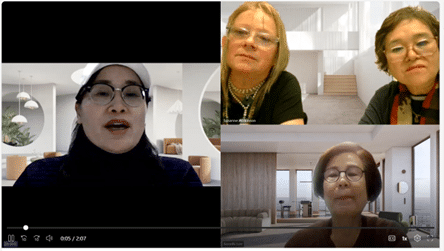
Navigating technology can be a challenge—even for seasoned users. Recognising this, the Hepatitis NSW Speaker Service recently hosted a dedicated training session to support three of our speakers in building their confidence with Microsoft Teams. The goal was simple: empowering them to bring their powerful, lived experience stories to audiences across NSW and beyond, using the tools of the digital world.
With online engagement becoming a vital part of connecting with communities, it’s essential that all speakers—regardless of background or digital familiarity—can participate fully and comfortably. This three-hour workshop provided just that opportunity, delivering hands-on training in an environment where the speakers mutually supported each other in language.
Participants learned key skills including how to:
- Schedule and accept meeting invitations
- Join meetings confidently
- Set up virtual backgrounds
- Mute and unmute themselves as needed
- Use reaction tools effectively
Beyond the technical aspects, the training also created a space for connection, practice, and confidence-building. It was not only about navigating Teams—it was about ensuring these powerful storytellers can be seen and heard, wherever their audience may be.
Thanks to workshops like this, Hepatitis NSW is helping to break down digital barriers and ensure that culturally diverse voices can continue to inform, educate, and inspire through lived experience—both in-person and online.

Hepatitis NSW Staff Focus: Chantell
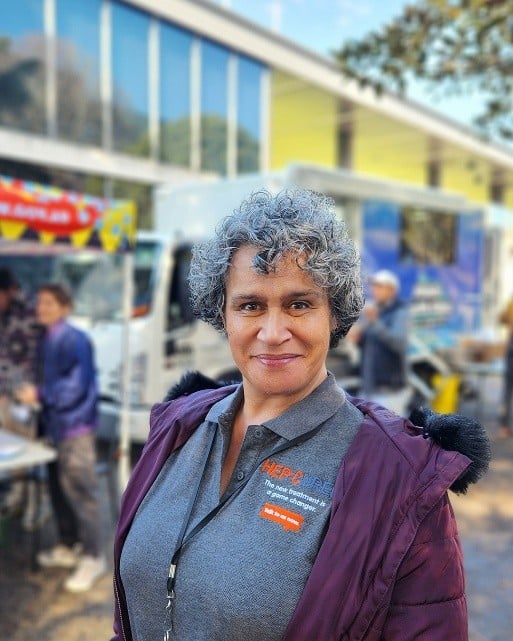
“First and foremost, I love my working environment, and I love the staff. Hepatitis NSW is so adaptable” Chantell
Chantell plays a vital role in ensuring the smooth operation of Hepatitis NSW by handling a mix of frontline, administrative, and operational tasks. She manages reception duties, engages with marginalised communities affected by hepatitis, coordinates the distribution of resources and office supplies, and supports staff by setting up workstations and assisting with onboarding. Her responsibilities extend to event logistics, meeting arrangements, and Board support, including preparing documents and organising travel. Chantell also helps manage the complaints system, contributes to finance tasks like payroll and requisitions, and supports volunteers and peers in settling into the office environment.
Chantell also has a wealth of lived experience which has contributed greatly to our organisation. Her first role at Hepatitis NSW was as a peer speaker, addressing audiences to improve attitudes, values and behaviours of the broader community and healthcare workforce. Chantell then moved into the EMPOWER Program, a peer-implemented initiative that provides rapid hepatitis C antibody testing using one-minute tests, the first step in the Cascade of Care.
Chantell returned to her community facing role during Hepatitis Awareness Week 2025. Ever gregarious and engaging, Chantell was delighted to share de-stigmatising information with people starting their journey to being free of hepatitis C.
Chantell’s lived experience is not, as she says, for her to keep to herself but to share. A lived experience unshared is a lived experience squandered, and she gladly shares her experiences with our community. For older people who fear the new hepatitis C treatment Chantell’s words can persuade them to get tested and cured. When they hear of her own journey with interferon and ribavirin, (bruising mind and body), they see today’s treatment in a new light.
Chantell loves working with community and for community. The hepatitis C team thought it was beautiful that she joined the Redfern pop-up for Hepatitis Awareness Week 2025. Her knowledge, experience and engagement skills are recognised not only by the Hepatitis NSW team, but also by our clinical partners.
“It was good to be back in community, and I look forward to doing it again.” Chantell

Tackling hepatitis C Together: Aboriginal Led Harm Reduction in Custody
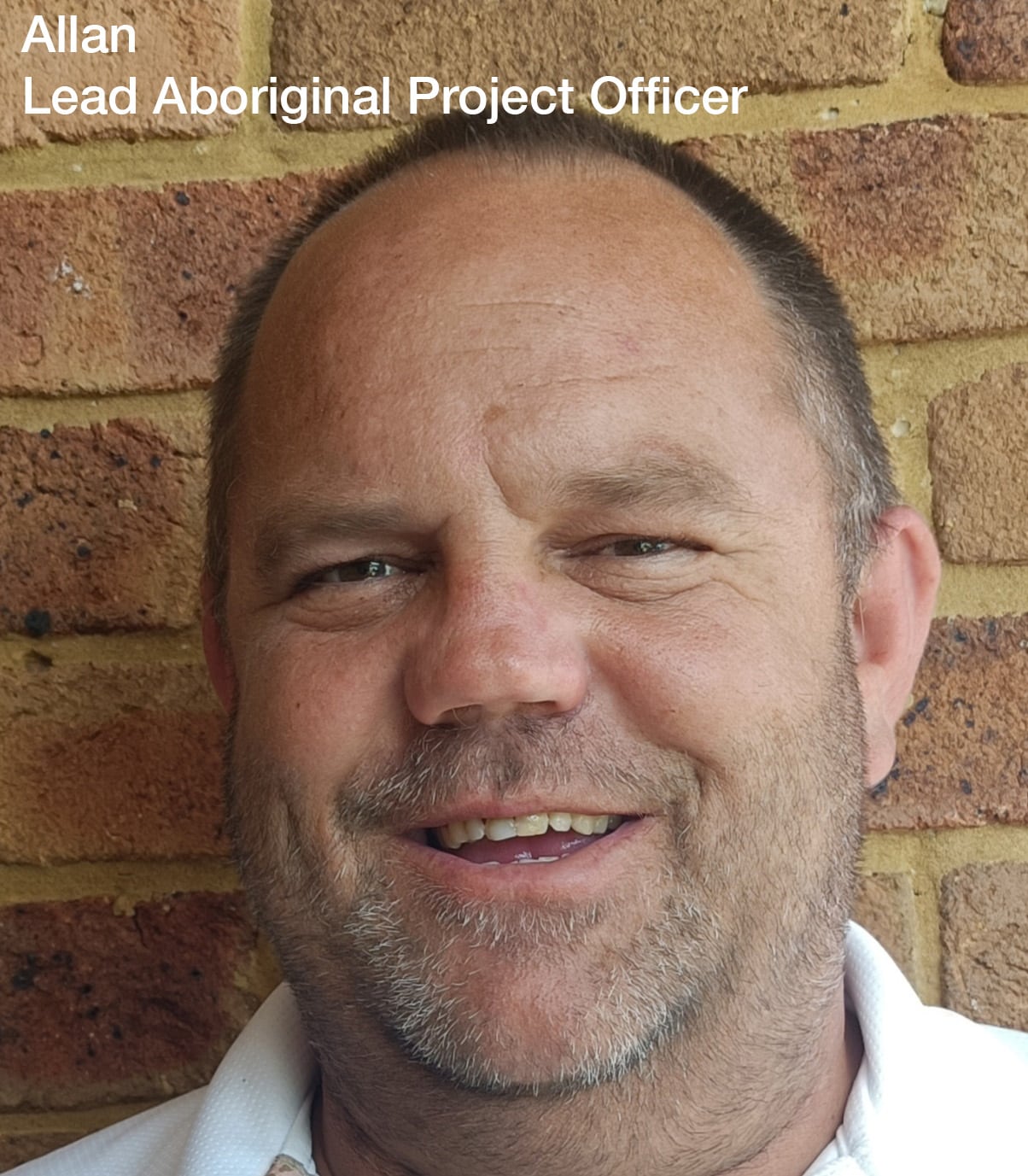
Hepatitis C continues to disproportionately affect Aboriginal people in custody, with some needing multiple courses of treatment. A new initiative led by Justice Health NSW is shifting the focus from top-down approaches to community-led solutions, recognising that meaningful change starts with the people most affected.
At pilot sites at South Coast, Wellington, and Mid North Coast—Aboriginal Project Officers are creating space for genuine, respectful conversations with Aboriginal people in custody. These conversations are happening in familiar, safe environments like yards and yarning circles. The goal isn’t just to collect stories—it’s to build trust and understand what’s really standing in the way of staying hep C free.
Already, people have spoken about systemic mistrust, a lack of culturally safe harm reduction programs, and the difficulties of staying connected to care after release. These insights are shaping the next stage of the project, which focuses on co-designing strategies that are grounded in lived experience.
Allan, the lead Aboriginal Project Officer, has begun sitting with Aboriginal men in custody at South Coast Correctional Centre, listening deeply to their experiences. This stage is about hearing without judgment and recognising the knowledge that already exists within the community. Next, Allan will be working alongside inmates to co-design practical, culturally relevant approaches to harm reduction and hepatitis C prevention.
As Allan puts it, “When the community is involved in finding the solution, everyone’s health gets better.”
If you’re working in hepatitis C prevention or care this is the time to support approaches that are grounded in Aboriginal leadership, cultural safety, and lived experience. To learn more about what’s happening in this space, please feel free to contact the Harm Reduction team at Justice Health NSW by emailing gary.gahan@health.nsw.gov.au.

Hepatitis B Voices Australia is Hiring
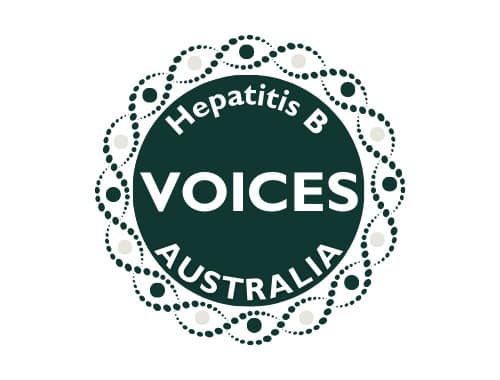
Hepatitis B Voices Australia is looking for a Project Officer to support a national, culturally tailored hepatitis B health promotion campaign.
If you’re passionate about community-led change, health equity, and hepatitis B awareness — we want to hear from you!

SafeWork NSW Consultation: How to Manage BBV Exposure Risks in the Workplace
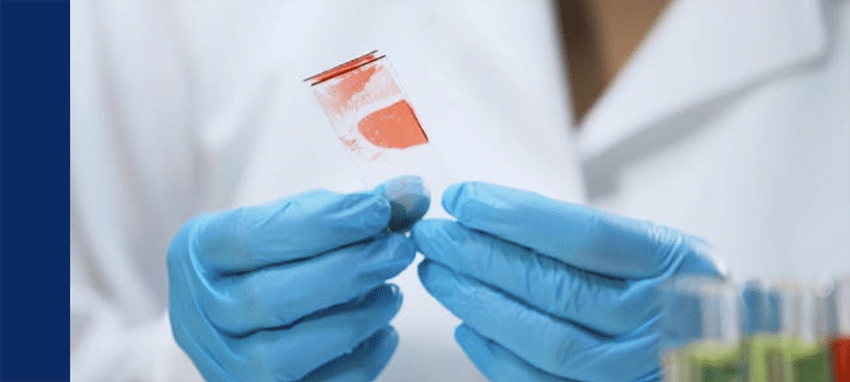
The updated draft How to manage BBV exposure risks in the workplace – hepatitis B virus, hepatitis C virus and HIV Code of practice has been released for public consultation.
SafeWork NSW are asking for feedback to make sure the draft code:
- is relevant
- is easy to understand
- supports current and emerging work practices and technologies.
The public consultation process is open until Sunday 31 August 2025 and responses will help ensure the code reflects the industry’s needs and protects workers and the community.
Here is the link to the consultation:
How to manage blood borne virus exposure risks in the workplace | Have Your Say

The Champion is our free monthly eNews with updates on hep C, hep B, treatment news, social media campaigns, living well with viral hepatitis, and events. To subscribe and receive a monthly edition of the The Champion to your inbox, please complete this confidential form:







